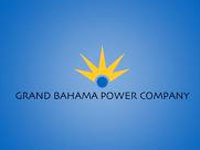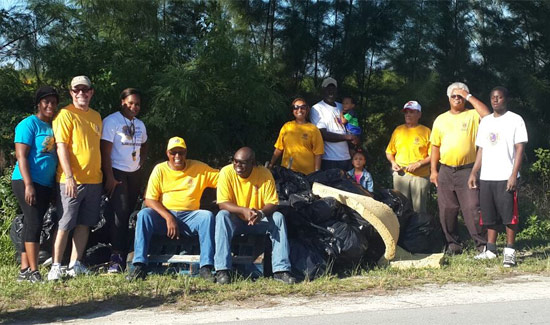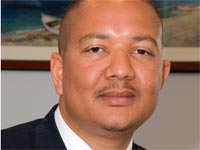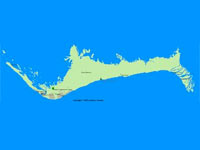
Introduction
Freeport, Bahamas – On November 16, 2011, Grand Bahama Power Company (GBPC) received a complaint in writing from Troy Garvey and Osman Johnson on behalf of Operation Justice Bahamas related to the operations of GBPC. In their complaint, they raised a number of concerns. These concerns have been shared not only with us, but with a number of public bodies. In this response, we have tried to address the concerns raised, and provide a detailed response for Messrs. Garvey and Johnson, and for our customers. This more detailed response follows an initial statement issued by GBPC immediately following the receipt of the complaint.
As many will know, in December 2010, Emera Incorporated purchased a majority interest in GBPC. Prior to this time, it held a small indirect interest, but was not responsible for the management of the company. Emera purchased GBPC because it believed in the future of Grand Bahama Island, the strength of the GBPC employees and the potential for GBPC to once again be an important element in supporting the growth of the economy in Grand Bahama.
By way of background, GBPC operates under the authority of the Hawksbill Creek Agreement, pursuant to a license granted by the Grand Bahama Port Authority (GBPA). Its operations are solely regulated by the GB PA. In fact, until the early 1990’s, GBPC was owned by the GBPA. Today, GBPC operates at arm’s length from the regulator, which approves, among other things, the rates charged to customers.
GBPC operates within Bahamian laws, and in accordance with the rules and regulations set out by its regulator.
GBPC understands that customers have been challenged with a higher than expected fuel surcharge. The changes that GBPC have been making over the last number of months, with Emera’s support, have been done with the best interests of our customers in mind. Our priority has been to improve reliability over the peak summer months so that we could avoid rolling black-outs experienced by customers in previous summers under the previous ownership of GBPC. This was done by bringing rental units on island as supplemental generation. In addition, the construction of the new West Sunrise plant will provide greater reliability and cost stability to the system. Going forward, GBPC will continue to seek alternatives to reduce the reliance on heavy and light oil.
Summary of GBPC’s Response
A brief summary of our response from November 15th is listed below. Following this is more detailed information on some of the more complex issues that have been brought forward in the complaint. GBPC is happy to discuss these issues in more detail with any stakeholders, government, our regulator, or members of the media if they would like further explanation.
1. Sale of Power Company – The sale of majority ownership of GBPC to Emera was done in full accordance with all regulations and approved by the Government of The Bahamas.
2. ICD Utilities – Individual shareholders of ICD Utilities do not have any direct control over decision-making at GBPC. Minority shareholders are passive investors in the power company and the power company retains its own independent Board of Directors which oversees the management and takes full responsibility for the company.
3. Fuel Surcharge – The current fuel surcharge is 21.0316 cents. This puts us in the bottom third (among the lowest cost) of 13 Caribbean CARILEC Utilities for “all in” electricity prices. There is a very direct link to the correct comparators of world fuel prices and the fuel surcharge over the years, including 2011. GBPC does not burn crude oil which is the fuel price being quoted by representatives of Operation Justice. We burn # 6 and #2 oil. The fuel surcharge reflects those prices. GBPC is actively working to stabilize fuel costs and will implement a fuel hedging program to provide greater predictability on fuel costs and reduce the volatility in the cost of electricity to customers.
4. Billing – Any customer who has concerns regarding their particular electricity bill is encouraged to speak with a member of GBPC’s customer service team. When a customer brings an issue forward, we review it, verify what we can and if changes are required, we make them. GBPC has, of its own accord, been auditing customer billings on a regular basis for the last few years and correcting any problems as they are identified.
5. Customers and Pre-existing Bills – It is not, and has never been, the practice of GBPC to require customers to pay the pre-existing bills of other unrelated customers. Any customer encountering this issue should contact the customer service centre immediately to ensure the matter is resolved.
6. The Estimation of Meters – Less than 4% of GBPC customers have their bills estimated. It is not GBPC’s preference to estimate bills and every attempt is made to gain access to meters so that they can be read. Any estimated bills are corrected for the customer when access to the property is provided and meters can be read.
7. Use of Steam Generation Plants – GBPC runs the most efficient generation mix of its assets, including the steam units, diesels and rental generation, to ensure that customers are provided with a reliable and cost effective power supply. GBPC has never stated that we would not be running the steam units as we do continue to run unit #12 as steam is a requirement of the plant. The rental units continue to be used as supplemental generation to ensure reliability and therefore the rental costs on the unit continue to be included in the fuel surcharge. As load has decreased and GBPC has been able to use the rental units less, the fuel surcharge has decreased in September, October, and November.
8. Damage to Equipment – There is a formal process to be undertaken in cases of equipment damage claims between the customer and GBPC. Again customers are encouraged to contact the customer service center to discuss this process and have their complaint considered.

Response
Fuel Surcharge
The fuel surcharge is a direct pass through to our customers, which means that GBPC makes no profit on the fuel surcharge. GBPC purchases fuel in bulk to reduce costs and to maintain a consistent supply for the island’s needs.
The fuel surcharge, calculated in accordance with a formula approved by our regulator, the Grand Bahama Port Authority, is determined each month based on two factors:
1. The actual cost GBPC paid for fuel it is now burning; and,
2. The amount of fuel GBPC uses in that month to produce electricity.
The total amount (cost times amount used) is divided by the total kWh’s used on the island during that month to arrive at a cent per kWh cost (¢/kWh) that is charged to each customer.
There is a very direct link to the correct comparators of world fuel prices and the fuel surcharge over the years, including 2011. GBPC does not burn crude oil; we burn # 6 and #2 oil. The prices being quoted by representatives of Operation Justice are based on the West Texas Index (WTI) crude market prices and do not reflect the costs of the oil sources we use. WTI is only available in central US and is not an economic option for GBPC because we would need to incur considerable transportation costs to bring this crude to the island.
The price of the oil that we use can be more accurately tracked using the Brent Index and #6 oil prices that can be found on www.reuters.com and on the attached chart. As you can see, our fuel surcharge mirrors the cost of these oil sources with a greater than 90% degree of correlation. In order to have sufficient inventories on hand, there is typically a two-month lag between the time GBPC purchases fuel and when customers see that cost on their bill. Therefore, the current fuel surcharge reflects the cost of fuel for the previous months. Factoring in the two-month lag, our fuel surcharge closely tracks the percentage increases and decreases of the Brent Index and #6 oil. In other words when the price of the oil increases exponentially, so does the surcharge; likewise, when it decreases so does the surcharge.
In addition, the fuel surcharge can be impacted in certain months by the level of mechanical failures experienced by our generation plant. In months where GBPC has experienced mechanical failures with unit #33 (our most efficient unit) we have had to use more fuel to produce the same amount of electricity because the other generation units are not as efficient. The cost of that extra fuel is then included in that month’s fuel surcharge.
While the fuel surcharge is largely driven by the world oil market price of light and heavy fuel, over which GBPC has no control, we have been taking measures to control the costs associated with the efficiency of our generation mix. Our efforts in this area, combined with lower fuel prices, have resulted in a fuel surcharge drop in August to 21.54¢/kWh and further declined resulting in 21.03¢/kWh for the month of November. GBPC is implementing a fuel hedging program to provide greater predictability on fuel costs and reduce volatility in the cost to customers. GBPC’s new West Sunrise plant will also help to ensure greater efficiency to our entire system thus improving reliability and doing so with the most efficient generation possible. Over the longer term GBPC continues to see ways to reduce GBPC’s dependence on fuel by finding more sustainable generation solutions.
Billing
Residential Customers are billed in two parts; the base rate and the fuel surcharge. Residential bills are calculated as follows:
- The first 350 KWh is billed at $0.1541
- The next 450 KWh is billed at $0.1788
- Usage in excess of 800 KWh is billed at $0.2095
The fuel surcharge (the charge per KWH as explained above) is applied to the total kWh consumed by a customer during the billing period. A GBPC meter person takes a reading of the customers’ meters every 28-34 days. After the meter reading is taken, it is uploaded from hand held computers to the GBPC billing system, and the account is submitted for billing.
In some cases (0.04%) the information entered by the meter reader is incorrect and in most cases is due to a lack of access to the customer’s meter. When errors in meter reads take place, they are usually caught the following month and corrected. Our meter reading and billing software is designed with built-in parameters to help minimize errors. To further minimize the risk of meter reading errors, we also rotate our meter staff on a quarterly basis, and our clerical staff monthly.
We strive to make continual improvements to further minimize opportunities for error in our tools and processes. Since 2009, we have been conducting an ongoing meter audit program where industrial customers are audited annually, commercial customers on a three-year cycle, and residential customers on an ongoing basis. Audit results demonstrate that the systems and processes currently in place are working.
It is impossible for us to respond to generalized statements that “various customers have apparent irregularities”. Any customer who has concerns regarding their particular electricity bill is encouraged to speak with a member of GBPC’s customer service team. We extended our hours for eight days in September and received very few customers during that time. GBPC has, of its own accord, been auditing customer billings on a regular basis for the last few years and correcting any problems as they are identified.
Customers and Pre-Existing Bills
Customers are not asked to pay for the electricity used by another non-related party. When, for instance, a new customer sets up a new account with GBPC, it is set up under a new account number unique to that individual. A pre-existing bill is the responsibility of the prior tenant or owner of the residence.
The Estimation of Meters
Approximately 4% of GBPC customer bills are estimated. The majority of those estimations are due to GBPC’s inability to gain access to customers’ premises. The safety of our employees is our number one priority so we train our employees to avoid situations that could be potentially dangerous such as entering a premise to read a meter with a dog that may cause harm.
When we are unable to obtain access, the customer bill is estimated based on the average of the total consumption for that customer at that location. GBPC consistently asks customers to provide us with access – this may mean providing gate keys, removing dogs from around the meter, and/or moving the meter to a place where our personnel can gain access to it without the need to enter the property.
GBPC also permits customers to read their own meters and either call in the readings or provide a photo of the meter by email to the company. When an actual reading is obtained the account is automatically corrected to reflect the actual reading. We are diligently working on ways to reduce the number of estimated accounts and ask that our customers assist us in eliminating some of the hindrances to our ability to read their meters.
The Use of Steam Generation Plants
GBPC is committed to running the most efficient generation mix of its assets, including the steam units, diesels and rental generation, to ensure that customers are provided with a reliable and cost effective power supply.
GBPC’s generation mix includes two steam units (#12 and #13), two gas turbines (#21 and #22) and three diesel units (#31, #32 and #33). All units require oil to create electricity.
When Emera obtained majority ownership of GBPC in January 2011, one of the main concerns was ensuring that our customers did not suffer through the island-wide blackouts and load shedding of the previous summer. To prevent that from recurring Emera brought in 45MW of supplemental generation from Aggreko. Construction also commenced on the new West Sunrise plant. The supplemental generation was never intended to replace any generation, but to supplement the existing plant to ensure we could meet the load demands during the peak summer season this year while we await the completion of the new plant.
Steam – Steam Unit #13 has an average heat rate of 14,000 btu/kWh and until recently had been considered a reliable unit. The units at the new West Sunrise plant currently under construction will have a heat rate of about 8,400 btu/kWh, approximately two times more efficient than Unit #13.
Built in 1971, Unit #13 has most recently suffered from generator, boiler and turbine issues and because of this GBPC decided to retire the unit instead of making ongoing costly repairs. Going forward, the new plant will provide more efficient generation than Unit #13 could have at full working condition.
GBPC has never stated that we would not be running the steam units. We do continue to run unit #12, as steam is not only used to generate power but is also required to heat the #6 heavy fuel oil. For the same reasons we elected to retire Unit #13, we will also retire Unit #12 once the new plant is online, which will include a mechanism to produce the steam that is required for plant operation.
Diesel – Our diesel fired generating units, which burn #6 heavy fuel oil, are the most cost-effective generation we can provide. But as stand-alone generation, our diesel units cannot meet the load demand of the island.
Rental Generation – Because the diesel units cannot meet the load demand of the island, another form of reliable generation was needed to meet peak demand this summer. GBPC determined that the optimal solution was to obtain short term rental generation. The Aggreko rental units are more reliable than the old steam units and significantly more efficient than the gas turbines which we would have had to rely on more heavily without the rentals.
Our decision on the right mix of generation is driven by not only the efficiency of the units but the cost of fuel to run the units. In spite of the fact that the rentals are more efficient, the cost of light fuel oil, which the rentals use, is more costly than heavy fuel oil. This cost differential between light and heavy fuel oil continues to fluctuate, and GBPC continues to evaluate the most cost effective mix of generation while maintaining a reliable system.
Damage to Equipment
On rare occasions, circumstances will result in damage to customer property through their electrical connection. GBPC has a process in place for customers with equipment damage claims. Customers can collect a Damage Claim Form from one of the two locations – GBPC’S Headquarters or GBPC’S T&D Administrative office (Cedar Street across from Freeport News).
The completed Damage Claim Forms must be dropped off at the T&D Administrative Office within seven days of an incident. The claim is then assigned to an investigator who contacts the customer and schedules a visit to inspect the damages. The investigator will also look at the customer’s electrical installation, and test the electrical installation ground. A written report is then forwarded to the relevant GBPC supervisor for review.
The supervisor reviews the details and renders a decision based on the information provided. If the Damage Claim is approved a reimbursement is calculated based on the depreciated life of the item(s) and the customer is either reimbursed or items are approved for repairs. If it is decided that the damaged items are to be repaired, a duly qualified, licensed entity is then contacted and the items are either delivered to them, or technicians would go directly to customer’s location to perform the repairs.
GBPC remains committed to improving reliability and stabilizing costs to customers as much as possible. We continue to work as a team to improve customer service. Emera assumed majority ownership of GBPC almost a year ago and at that time noted that this utility required a turnaround in order to make it more efficient, reliable and cost effective for customers. Emera continues to work towards these goals.
It is also important to note that, as with other Caribbean islands, costs incurred to purchase crude oil, as well as to generate electricity for a relatively small population, necessarily means that our customers will pay higher costs than do our neighbors in the US. To that end it is important to note that GBPC’s fuel surcharge and all-in rates are comparable to similar size utilities in other Caribbean counties.
GBPC remains committed and focused on communicating openly and transparently with our customers. To that end, we will be increasing our communication efforts on multiple fronts, both externally and internally. We are confident that we are making the right and responsible choices to bring cost-effective and reliable service to our customers and will continue to work hard on achieving our objectives.
By Philcher Grant, GBPC



